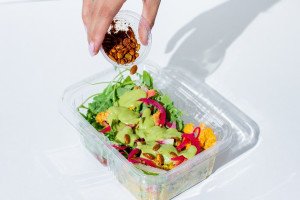So, Should You Eat Your Placenta, Or What?

Shutterstock
People have been eating their placentas left and right, it seems. Kourtney Kardashian has called her post-baby placenta pills “life changing,” a new mom explained her decision to eat her own placenta right here on Be Well Philly not too long ago and, as we told you in the past, there is a doula in Philly who will turn your placenta into ceviche. (Yes, you read that correctly.) With a business like that, there’s got to be some demand, right?
So why (oh whyyy?) are people turning their placentas into ceviches, you ask? Well, supporters of the practice say eating your placenta can stave off postpartum depression, help to increase milk flow and boost energy. The problem is, there isn’t a whole lot of science to back these claims up. Which is why, as The Atlantic reports, researchers at Northwestern University decided to review what scientific literature does exist on the subject. The review was published last week in the Archives of Women’s Mental Health and, for everyone out there who’s choked down a piece of placenta ceviche, the news isn’t so good.
As it turns out, all this placenta eating might not be worth it. The researchers found that there is no real evidence to prove eating your placenta will do you any good. As lead researcher Cynthia Coyle told The Atlantic, “There really are no human studies based on today’s scientific standards to actually show as evidence for human effects, and the animal studies aren’t translating into human benefits.”
And because there are no guidelines when it comes to how placenta is consumed, it could actually do you more harm than good. As The Atlantic explains, “If uncooked, the placenta likely poses the same risks of infection as eating other kinds of raw meat.” If you just cringed, you are not alone.
Another problem the review points to is that we don’t actually fully know what’s in the placenta. We know that there is oxytocin, progesterone and iron — all good things — but we don’t know how much or whether or not the amount in the placenta would truly impact one’s health. And not-so-healthy heavy metals like lead and mercury have also been found in placentas post-birth.
In the end, the main driving force behind eating placenta post-baby is anecdotal. And to each his own, but if I’m going to eat something that came out of my own body, I want some cold, hard evidence it’s going to vastly improve my life. Vastly.
As Coyle told The Atlantic, “For women who are very conscientious about what they put in their body during pregnancy and nursing and who maybe would avoid raw fish or certain cheeses or whatever else, before making this decision just be aware that it’s still unknown what’s being consumed.” So long story short, if you were planning on whipping up a placenta smoothie (because, yes, that’s a thing), not so fast.
Like what you’re reading? Stay in touch with Be Well Philly—here’s how:
- Like Be Well Philly on Facebook
- Follow Be Well Philly on Twitter
- Follow Be Well Philly on Pinterest
- Get the Be Well Philly Newsletter


